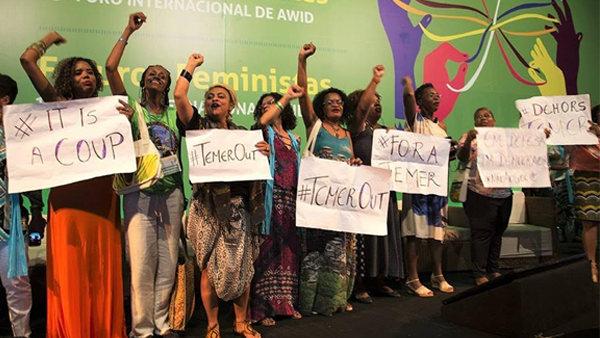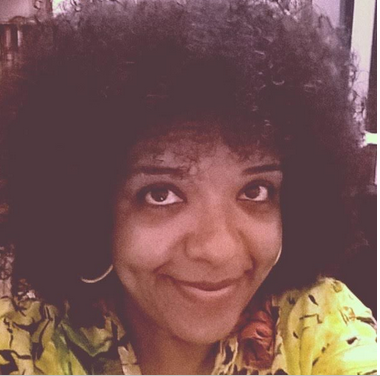Connections for feminist futures.
Black women and an ilá1
Voices that sometimes echoed in secret
Voices that sometimes echoed in the slumber of denial
Now
The voice that will not stay silent
Spreads to the body that also speaks
Bringing an entire generation
Goes through several walls and worlds
It is the ilá of the ones who do not sleep

Intersectionality as a tool: that is the first step to take to build feminist futures.
We experienced its different dimensions during the AWID Forum. The diversity of the women, their demands and their forms and strategies of resistance was the greatest lesson, as was seeing how we are connected by our struggles and ancestry.
Many things happened in the spaces generated at the AWID Forum. Our ancestry was present in the struggles, resistance and dance. That is when I understood that "My ancestry dances in the revolution".
Feminine ancestry is feminist and it embraces all of our differences and intersectionalities. When I look at the world, I see this path as the only one that leads towards fulfilling dreams of a world with less inequality, free from all forms of oppression and based on the understanding that we are diverse, each with particularities of corporality and place.
To see a human being fully, we must first see what the body is made of. Kimberlé Crenshaw says that when reflecting on the construction of the social and political sphere, intersectionality is not a holistic vision of identities, but rather a vision on the multiple sources of identity.
I find refuge in my sister's arms (Sisterhood) - For us, by us and between us
During the Forum's closing session, Jurema Werneck presented a demand and said, "To take the next step, we must make connections ". For me, this was the main product/outcome/result of the forum: the commitment to build linkages with women around the world and unite with them to face the pain that affects each one. If the struggle is collective, pain, love and the cure are too. Sisterhood cures the pain of the soul and saves us. We are not alone.
Part of the understanding of the setbacks we are currently experiencing, the violation of the rights we have won and the increase of various forms of violence that affects us here in Brazil and in other parts of the world has to do with us. It is about us.
Feminism is a collective struggle. Black Feminism is for everyone, as it is intersectional. I end here with a cry, a hymn, the venting of young feminists: "Sister, help me because I cannot walk alone. I walk well on my own, but with you, I walk much better!"
The AWID Forum raised the voice of the women of the world. The most important thing for the black feminist struggle is to be heard in the first person.

About the author
Emanuelle Goes is a Black Feminist, Activist of the Black Women's Movement, Blogger, Nurse and Coordinator of the Black Women's Health Programme – Odara Instituto da Mulher Negra (Odara - black women's institute), Emanuelle is pursuing a PhD in Public Health (ISC/UFBA).
1 "Ilá" is the voice of an Orixá.
